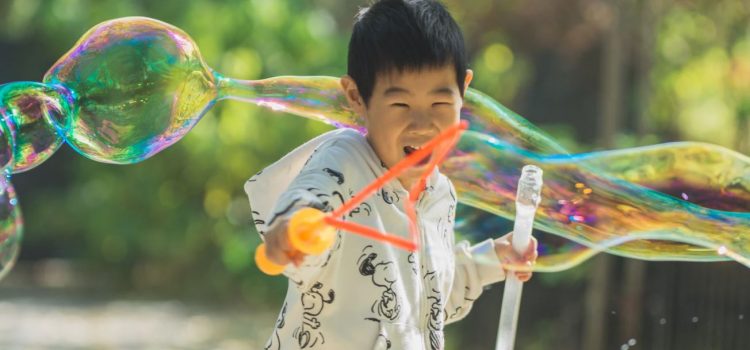

This article is an excerpt from the Shortform book guide to "Stolen Focus" by Johann Hari. Shortform has the world's best summaries and analyses of books you should be reading.
Like this article? Sign up for a free trial here .
What is the importance of play in early childhood? How does playtime affect a child’s focus?
Stolen Focus by Johann Hari says that playtime is crucial for a child’s cognitive skills. How children spend their time contributes to rising levels of difficulty in paying attention.
Learn how changing a child’s lifestyle and playtime can affect them.
Why Playtime Is Important
We can see the importance of play in early childhood by seeing what happens when children don’t participate in playtime. Both at school and home, children have too little time and space to play without adult guidance. At home, children have fewer opportunities for unstructured play and outdoor activities. Hari notes that by 2003, only 10% of children had regular access to outdoor play. At school, children spend more time preparing for tests than learning through play or discovery. The No Child Left Behind Act made standardized testing pervasive in US schools. Hari claims that in the four years after its passage there was a 22% increase in attention deficit diagnosis. And schoolwork continues at home, with one study finding that US children spend almost eight more hours a week on homework than 20 years ago.
The Effects of Lifestyle Changes
Hari reports the importance of early childhood by showing what a lack of play does to children’s abilities:
1) Exercising less affects concentration. Exercise helps children’s developing brains grow and refine their functions. If children exercise less, their brains have fewer opportunities to develop, which can lead to attention problems.
2) Playing less offers fewer opportunities for learning skills, including managing anxiety. Play helps children develop a range of skills, including problem-solving and learning to manage unpleasant emotions and unexpected results. When children don’t learn to cope, they become more anxious, and research indicates that anxiety makes it more difficult to concentrate.
(Shortform note: Research has shown that, in particular, children benefit from playing outdoors and engaging with nature. Besides increasing children’s physical activity, playing in nature teaches emotional regulation, healthy habits, exploration, and child-initiated learning.)
3) Curbing play stifles intrinsic motivation and the development of mastery. Children learn to concentrate by working on tasks that intrinsically motivate them. That includes tasks that are meaningful to them and not imposed by others or carried out to receive a reward. (Shortform note: In a sense, they learn to focus by finding flow in activities they enjoy.)
Similarly, we improve focus by developing mastery of a skill we’re interested in. If we feel that we’re getting better at something, we work harder to improve our skills. But if we constantly feel that we’re failing, we give up more easily. Hari argues that not enough play and excessive standardized learning hurt children’s intrinsic motivation and desire for mastery. Eventually, this makes it harder for them to learn how to focus.
(Shortform note: In his book Mastery, Robert Greene argues that to become a master of a skill you need technical proficiency (being excellent at the skill) and social know-how (being able to garner people’s support around you and the skill you’ve developed). If young people are having trouble focusing to hone their skills and developing the social know-how to interact with others, it follows that they will encounter twice the challenge in developing mastery.)
More Screen Time Hurts Young People
Beyond the effects of children’s lifestyle changes that Hari points out, there’s an even more worrying one: Today’s children and teenagers are less happy. A survey that’s been asking pre-teens and teens since 1975 to describe their daily activities and report on their happiness has found a clear correlation between them. The more time teens spend on screens and less time interacting in person, playing sports, or studying, the more likely they are to be unhappy. Depression and anxiety diagnoses are also higher among young people who spend more time on devices and less time developing social skills in person.
However, a psychologist specializing in generational changes argues against Hari’s assessment that young people have less free time. At least when it comes to high school students, some studies suggest that they are spending less time on homework than two decades ago, leaving them with more free time which they generally fill with technology.

———End of Preview———
Like what you just read? Read the rest of the world's best book summary and analysis of Johann Hari's "Stolen Focus" at Shortform .
Here's what you'll find in our full Stolen Focus summary :
- The seven factors causing the current attention crisis
- Johann Hari's three-part solution to gaining your attention back
- Why society needs to change, not just individuals






